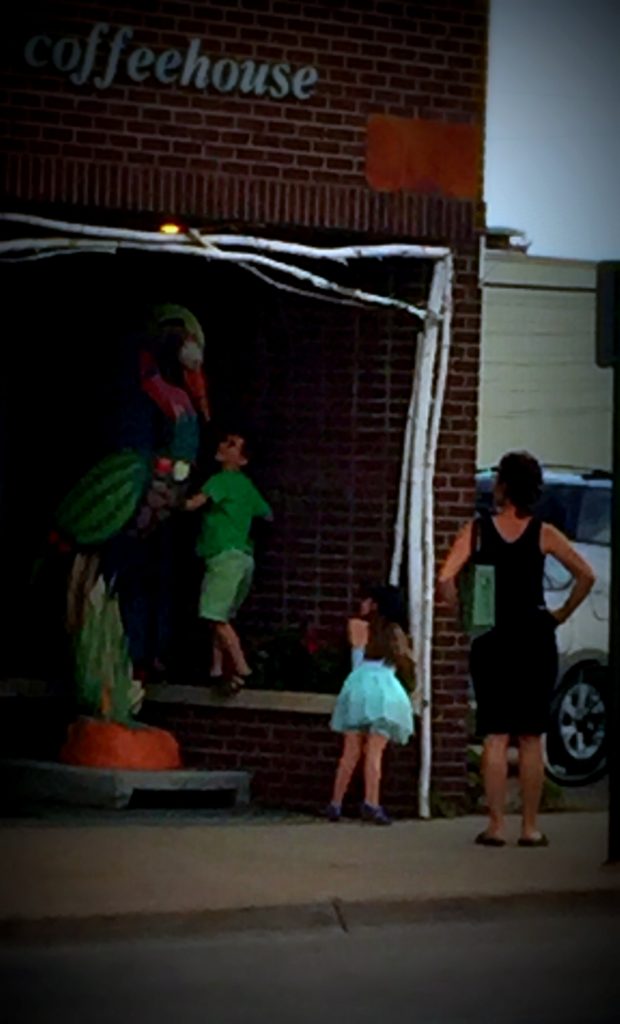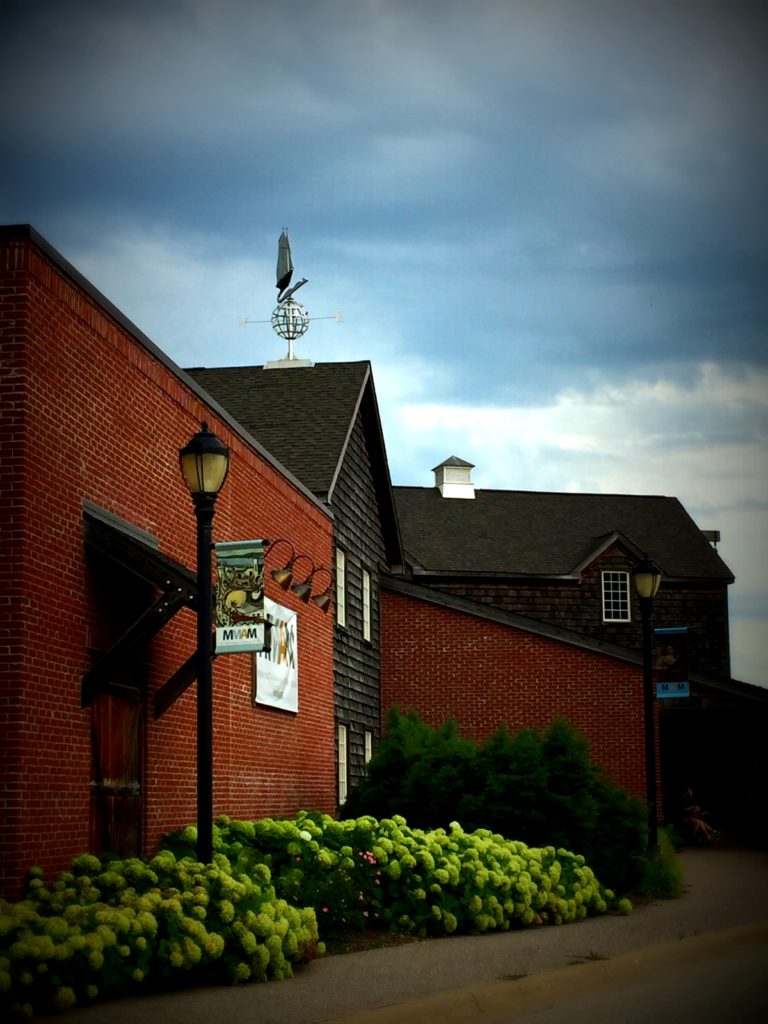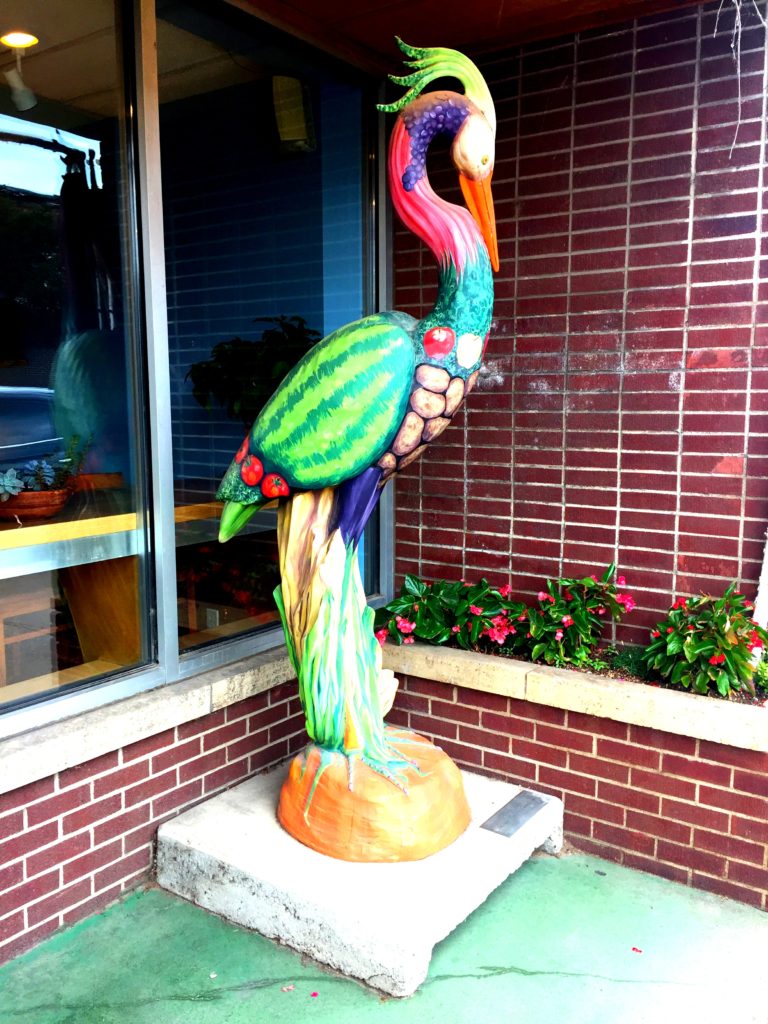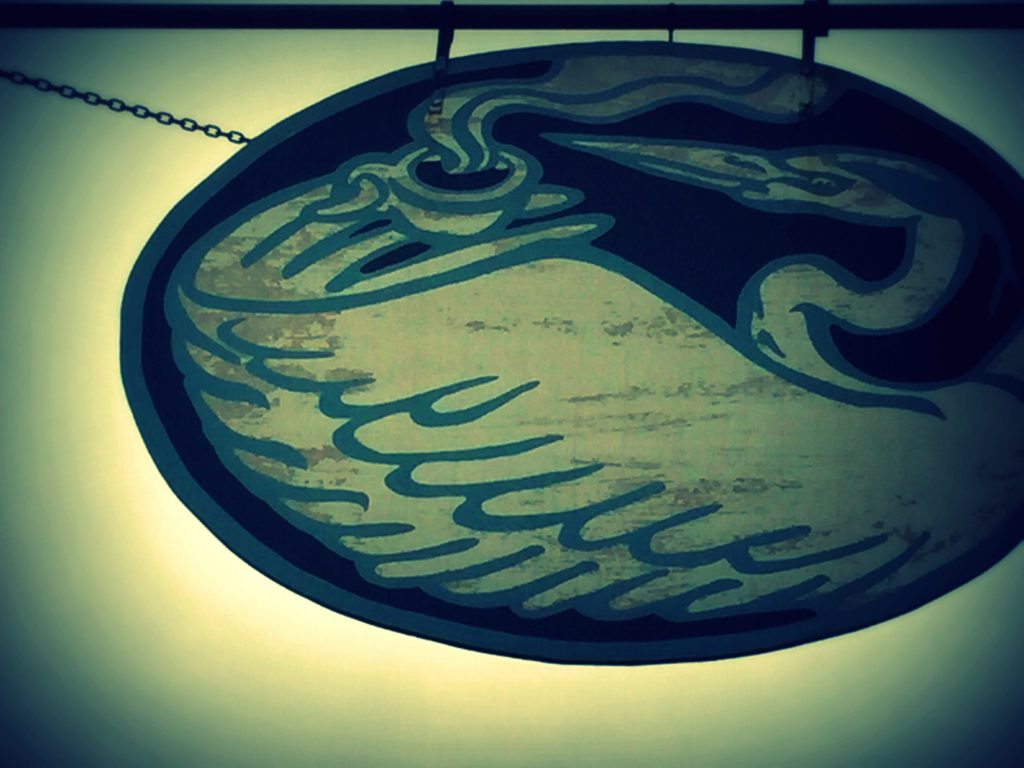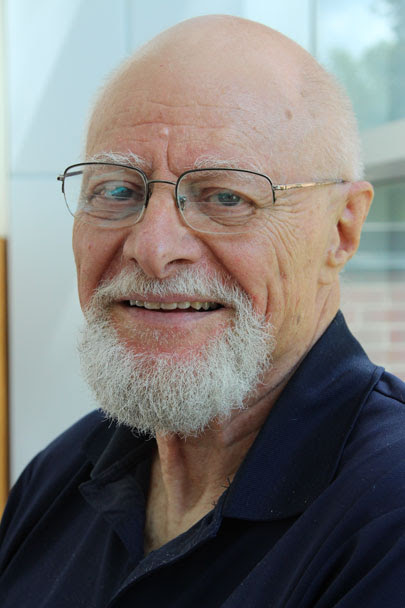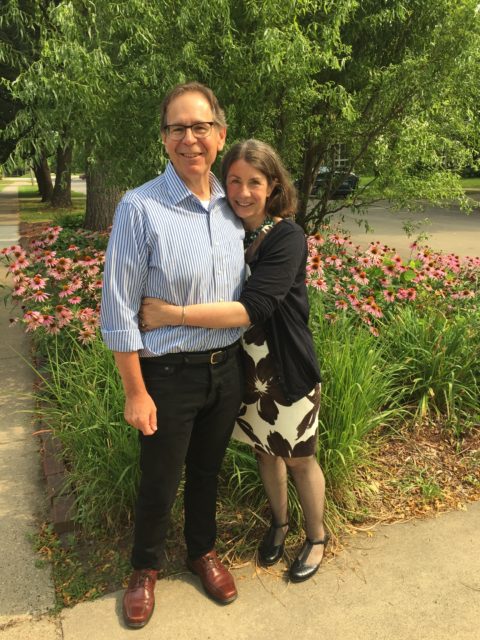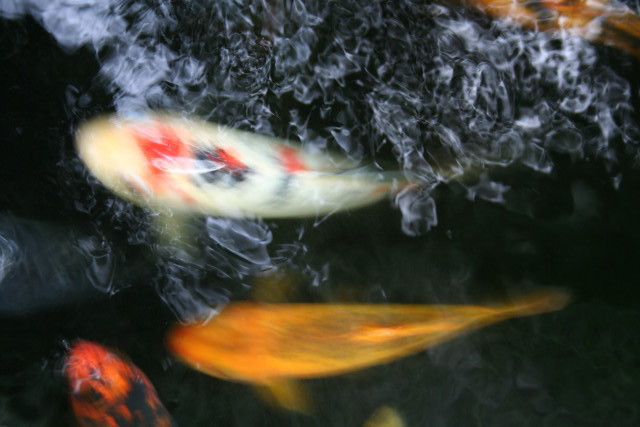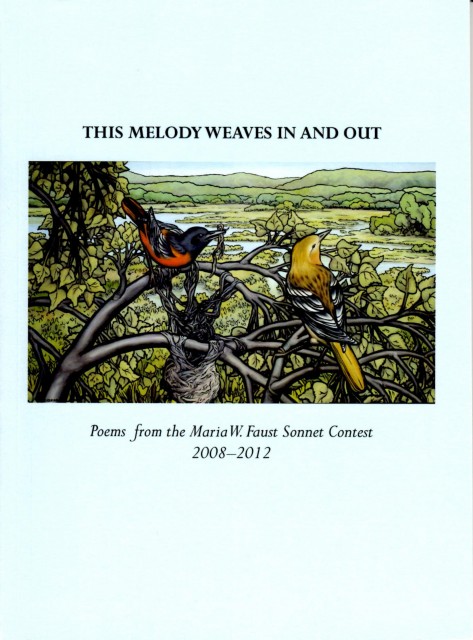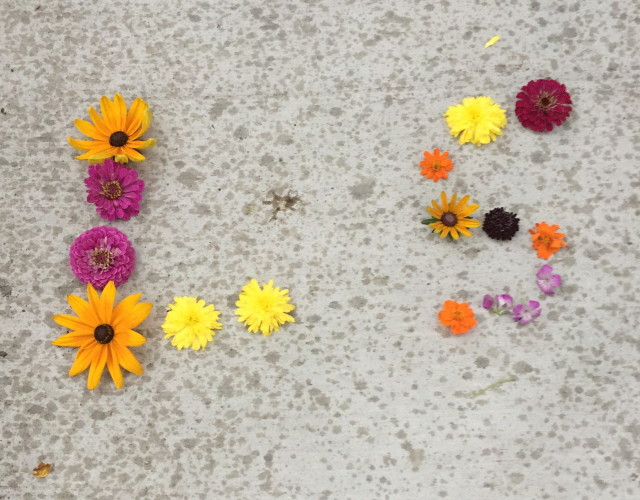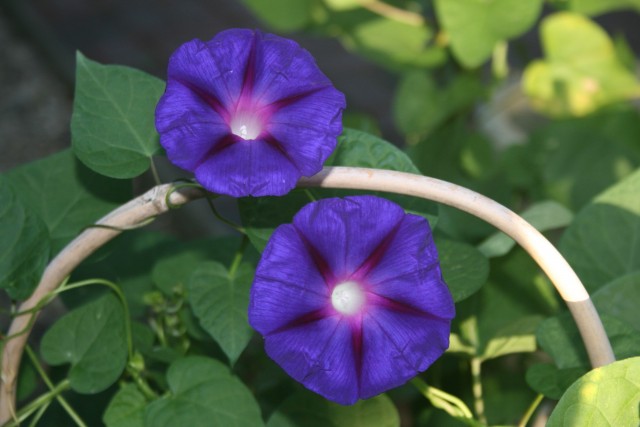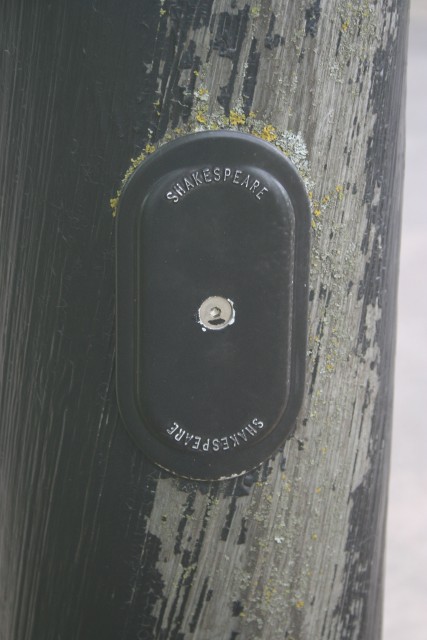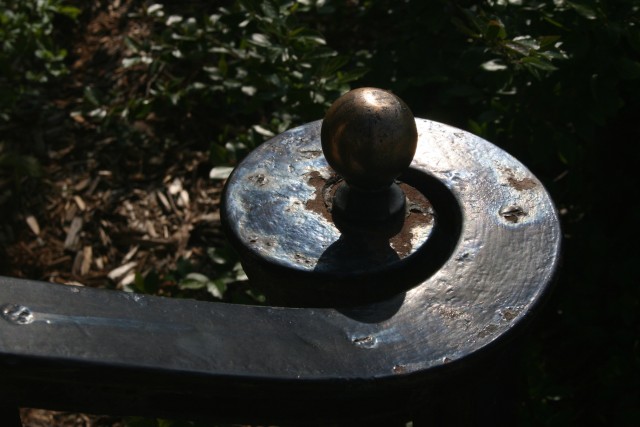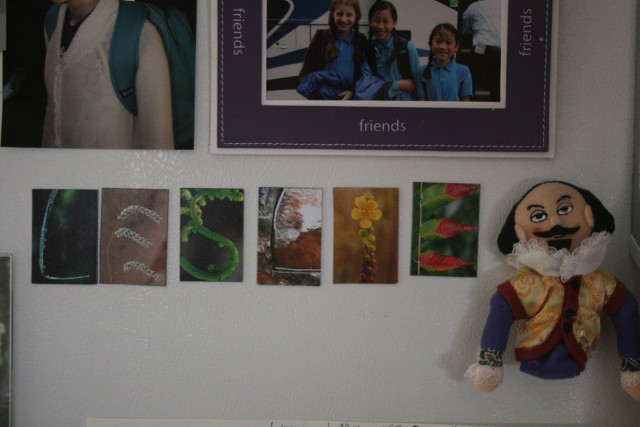
When I think back over the past three months–glad that I will not be assigned an essay!–I still I wonder just what I did with my summer vacation, and how I will use my time this fall. As I review June, July, and August, I see how much did happen, though not always what I imagined would occur.Two themes, celebrations with friends and literary preoccupations, dominated. Here is a long summary, (kind of a flip book of pictures), of those lazy but oddly hectic months–they made for a lovely summer, yet I am eager for the next adventure of autumn.
JUNE
First, Julia left for Maine, traveling with friends, mostly on the train for her third trip to the Darling Marine Center near Damariscotta.
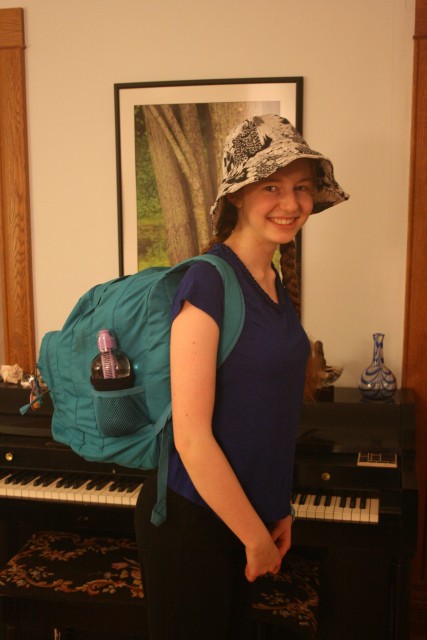
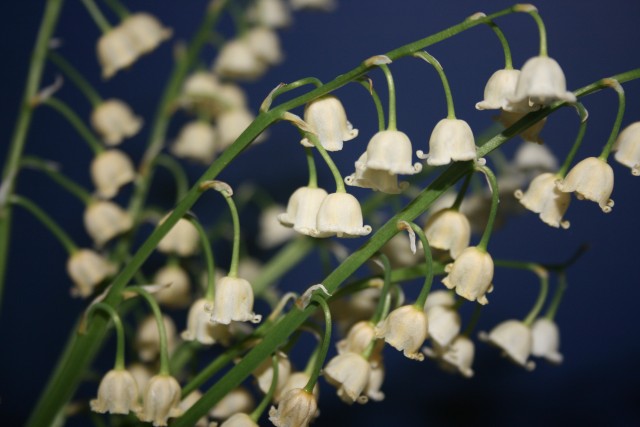
The day after her departure, Tim and I embarked on a home improvement venture: repainting the living room and dining room. From “Lapis Lazuli” in the north-facing dining room and “Alice Blue” in the living room, these spaces are now united in color: a grey-green “Horizon” on the walls and a pale purple “Lavendar Whisper” on the ceilings, the same as in my office upstairs. We thought two weeks of effort (including a week of vacation for Tim) would be ample, but it was a full month of effort to see it through. We love the results, though–still haven’t put up any pictures, because we’re still enjoying the serenity of fresh paint.
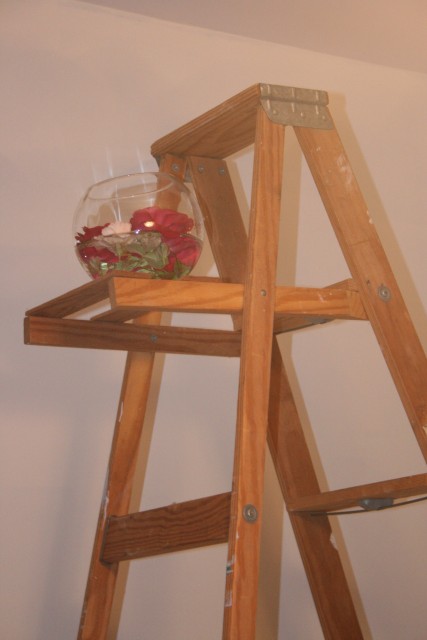
Even the primer made a dramatic difference! (Accent flowers from the Corrine and Elvin Heiberg cheered us on amid the disruption.)

Peanut tried to help lend a paw, but it was renting scaffolding that truly made a difference. Julia returned at the end of the month and held an early birthday party for herself so all her friends could attend.
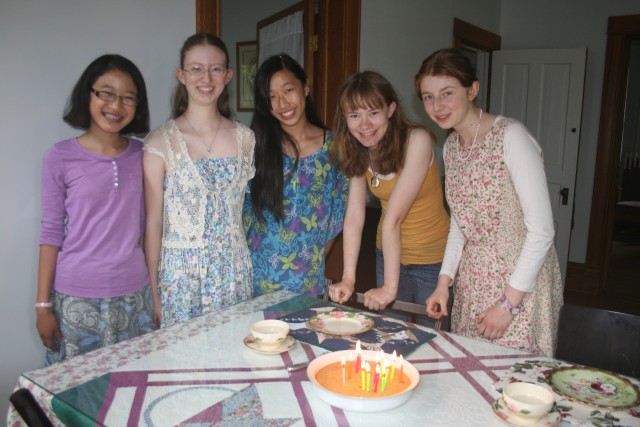
Meanwhile, I took lots of photos in June, worked on a quilt, culled twelve bags of books to give away, wrote a dozen poems, and began planning a short story based on a memory of my father’s mother, and launched into study of the craft of fiction with another writer (using Janet Burroway’s book called Writing Fiction: A Guide to Narrative Craft). The novel drafts, however, languished, and I took a break from sending out poems to journals, though I did submit my book-length collection, Reading the Bones, to several contests.
JULY
July began with “Zhivago Fest”. My friend, Ann, and I have for several years read ahead for a summer visit and discussion. Each year, we choose a new topic. This year, at my request, we planned a visit around a remedial read for me: Boris Pasternak’s novel, Dr. Zhivago. I have learned a little about Russian literature in the past few years, and I knew of Pasternak’s reputation. I also knew that I would not be able to learn Russian in order to enjoy the poems that made his reputation; on the other hand, all I knew was the blockbuster movie from the 1960s. Sad to say, for me Omar Sharif was Yuri Zhivago. Thanks to Ann’s willingness to keep me company, I have now a little better sense of the book behind the blockbuster. In addition, we worked in some related activities for fun.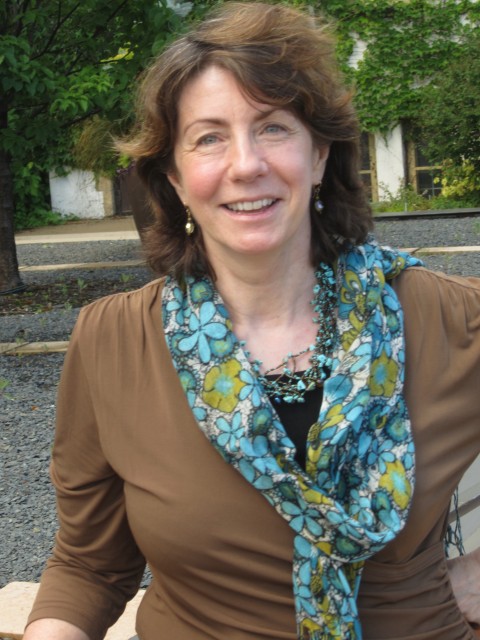
Here is a photo Ann took of me in front of the Museum of Russian Art in Minneapolis. We also went to Moscow on the Hill, a restaurant in St. Paul, to sample to borscht, watched two film versions of the story, read some translations of the poetry,listened to lectures and read some criticism of Pasternak’s work, and made collages to commemorate the year-long enterprise.
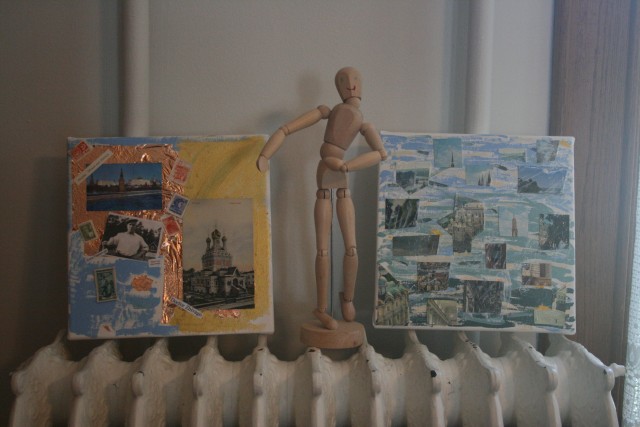
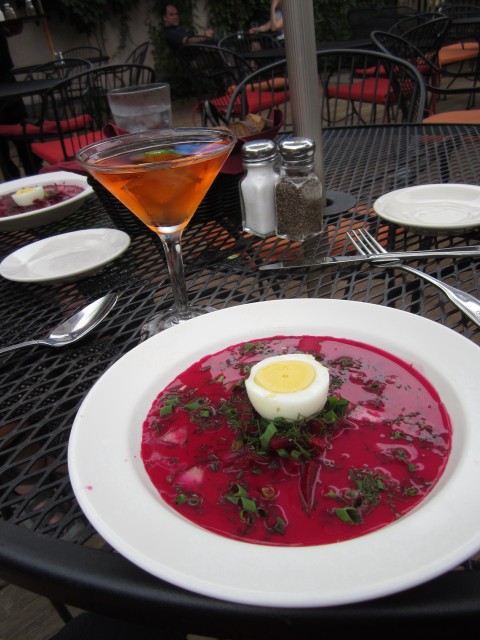
Then I turned from Pasternak, briefly, to Dostoevsky. In preparation for a two-session online seminar with Julia Denne through www.bytheonionsea.com, I read his novella Notes from Underground. Very glad I was to have read this work and to have had a teacher to supply context.
AUGUST
August was a month of celebrations, on the road and at home, beginning and ending with birthdays. First, we hosted a mystery destination picnic for a friend.
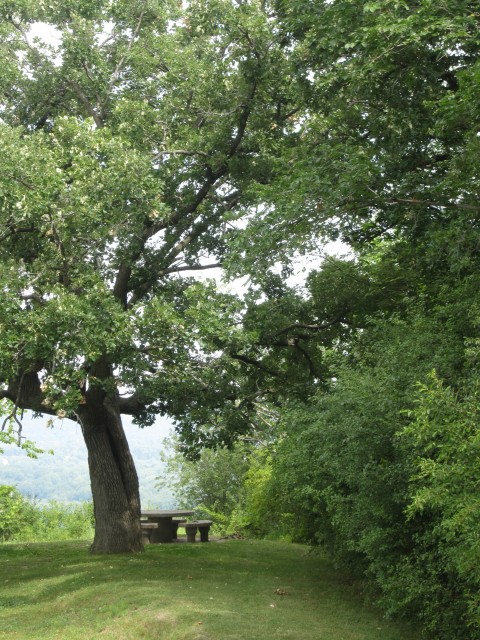
The destination was Red Wing, Minnesota. Encouraged by the example of our culinarily superior neighbors, the Noers, who introduced us to the magic of Julia Child’s Queen of Sheba chocolate cake, I tried my hand at it. Both the recipe and the YouTube video were available for free online, confirming my wonder at the magic of the Internet.
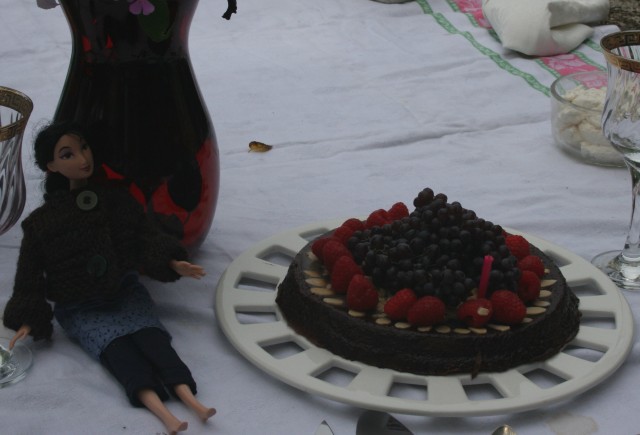
Then Tim and I celebrated our anniversary with a road trip. We first went to Winona’s Great River Shakespeare Festival for the reading of the 2014 winning sonnets in the Maria W. Faust Sonnet Contest. They did not disappoint! Then we had lunch at the restaurant attached to the Blue Heron Book Store in Winona before crossing the Mississippi to idle our way up the western Wisconsin side. I understand why it is renowned as the most beautiful drive in the country–it is definitely a contender.
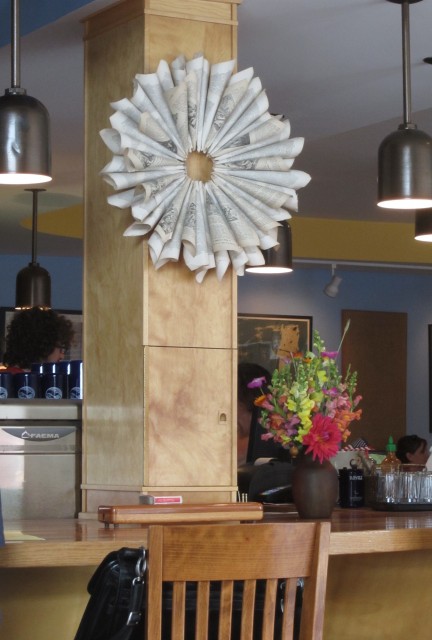
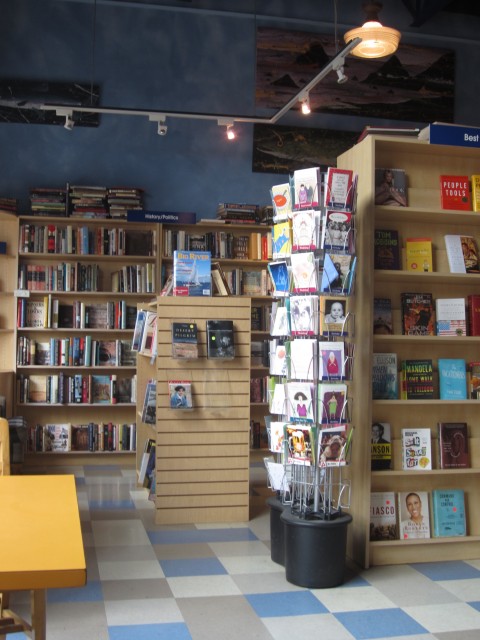
First we stopped in Pepin,
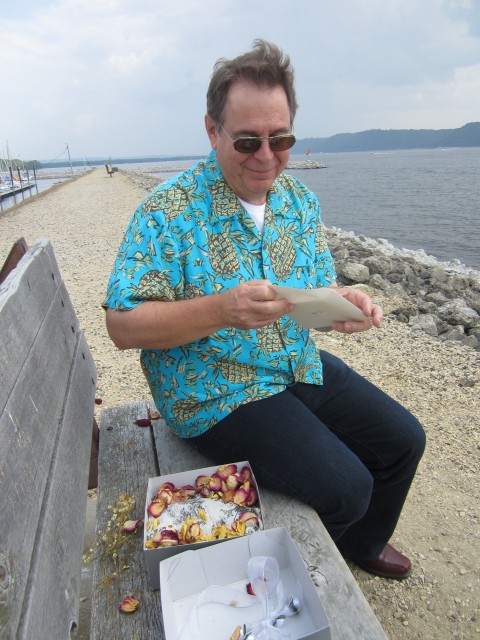
Then we stopped at the Maiden Rock Winery and Cidery and a wonderfully curated store called A Cultural Cloth that brings artisans and beautifully made hand-crafted items from all over the world to Maiden Rock. Finally, we had a splendid dinner at the unpretentious Chef Shack Restaurant in Bay City, where the cuisine outshines most of the upscale Twin Cities offerings.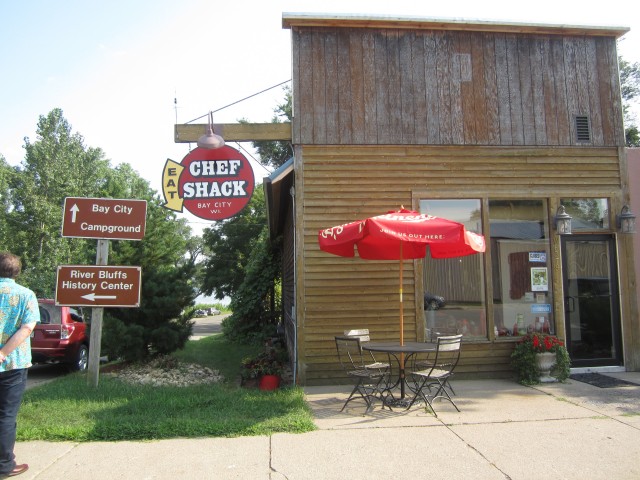
Later in the summer, we feasted with our friends the Dennes. I was glad to have had help with making a Pavlova dessert, and old favorite from the middle school years I spent in Australia. Back then, you couldn’t attend a summer “barbie” (bar-be-que) or open a women’s magazine without encountering a “pav”, so for me this fruit-and-meringue treat was a blast from the past.
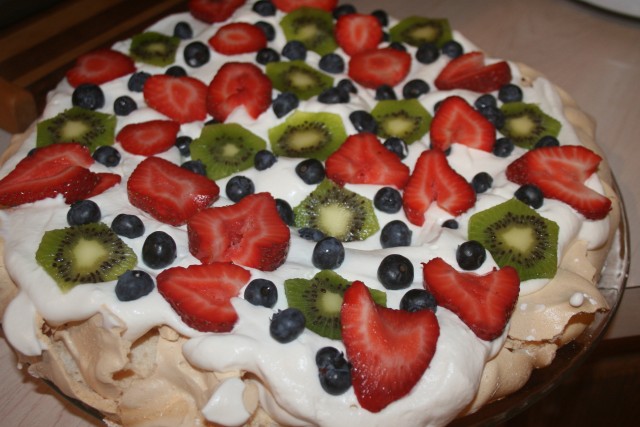
We were lucky that the Dennes could stay for several days. We even got to pitch a tent for the girls, make a first visit to Garrison Keillor’s book store in St. Paul (superlative poetry section), and see the “Marks of Genius” exhibit at the Minneapolis Institute of Arts.
August wouldn’t be complete without the joyous capstone event for the Northfield Sidewalk Poetry project.
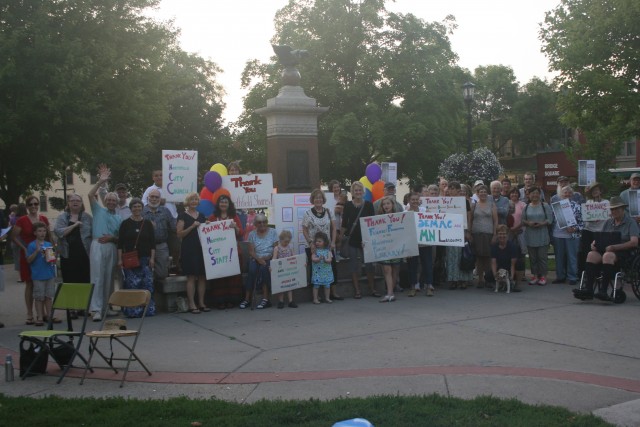
We ended the month with two more events, a lunch with three students from Doshisha University in Japan (followed, the next week, with a lovely dinner made by the Japanese students at Carleton)
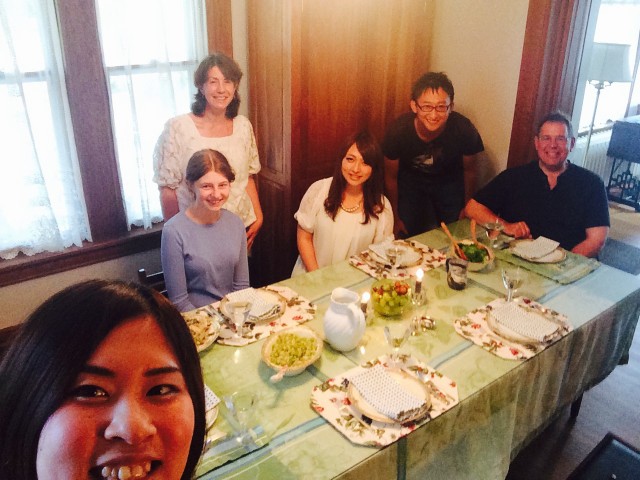
and, to cap everything off, a “Sundae Party” on Sunday, August 31, which was our friend, LaNelle Olson’s 85th birthday.
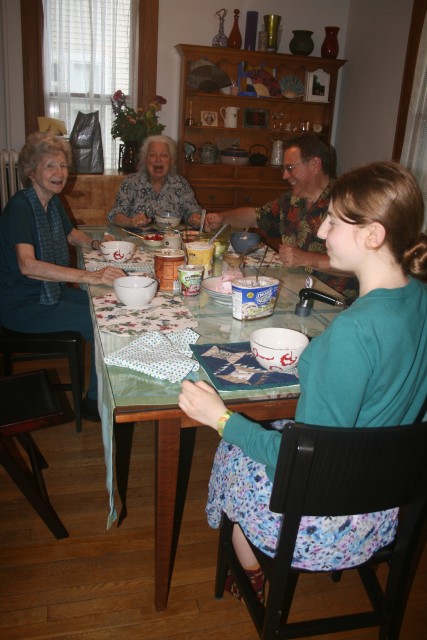 \
\
Just a week or so into September, the summer seems very far away. As I write this, we’re socked in with a long forecast of chilly rain, and Julia is well launched into her fall activities. Projects that languished a bit for me in late summer are now beckoning, and will be the subjects of later posts–memorizing poems, finishing that star quilt–and I have begun a new personal endeavor: writing my autobiography.
As I conclude this review, I wonder what the summer was like for you, so if there is a highlight you’d like to share, please post a comment or drop me a line.
Until another Wednesday, wishing you well, 
